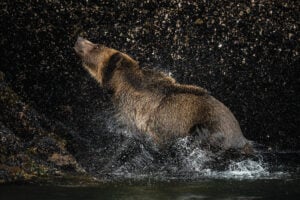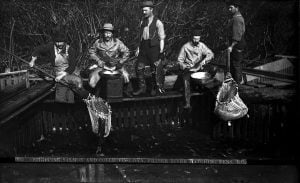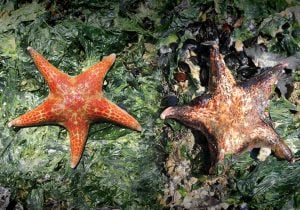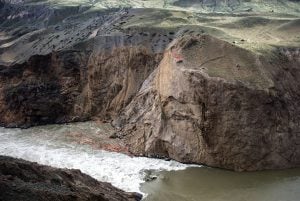Low sockeye salmon returns this summer have prompted the closure of fishing in two main British Columbia rivers, raising concerns over what’s threatening the popular fish.
Earlier this summer, commercial fishing of sockeye was closed on the Skeena River due to low returns. Fisheries and Oceans Canada estimated 70 per cent of the Fraser River sockeye wouldn’t survive this year’s journey upstream to their spawning grounds. To give those few who did their best chance, all commercial, recreational and aboriginal fishing for sockeye on the Fraser remains closed.
With the low number of returns this summer, there is debate over whether this is a mere one-time event or whether sockeye populations are under real threat from climate change.
“People have to simply reduce the expectations they have for fish, sockeye in particular, based on what we think are going to be continuing trends in climate driven processes,” says Randall Peterman, a professor at Simon Fraser University and former Canada Research Chair in Fisheries Risk Assessment and Management.
Jeff Grout, the regional resource manager in the Pacific Region of Fisheries and Oceans Canada, points to the hot weather in British Columbia this summer as the culprit, which caused the temperatures in the Fraser River to rise and resulted in a lower number of sockeye making it upstream.
However, Peterman says there are other potential causes, including some linked to climate change, which are resulting in declining numbers of sockeye not only this year, but in recent years in Washington, British Columbia and southeast Alaska.
“For stocks from northern B.C. downward, there are lower survival rates when sockeye enter the ocean when it’s unusually warm,” Peterman says. But it’s not the warm water that’s lethal.
“Temperature is not affecting the salmon per se, but the food supply,” he says, adding warmer water is associated with poorer food conditions in the ocean.
Peterman also says ocean predators may be causing the decline in sockeye. “Juvenile salmon early in their life history in the ocean are very vulnerable to being eaten.” As well, he says the decline could be the result of unknown viruses or diseases killing the sockeye.
But Grout isn’t ready to point fingers at climate change, saying it’s difficult to determine a specific factor that’s causing this year’s low sockeye run.
The reduced number of sockeye this year isn’t completely unexpected. As sockeye run in four-year cycles, this year’s swimmers are the children of the devastating 2009 returns, one of the lowest years on record.
Initially, the federal government estimated there was a one in two chance that the number of salmon returning to their spawning ground in the Fraser River would be around 4.765 million or less. However, Grout says the forecast is now around 4 million. This is better than 2009, when there were only around 1.4 to 1.6 million returns.
“We’re currently projecting we’ll have more spawners than in 2009,” he says, adding that he’s cautiously optimistic. He also says there is an abundance of pink salmon this year, with the run up to 16 million.




